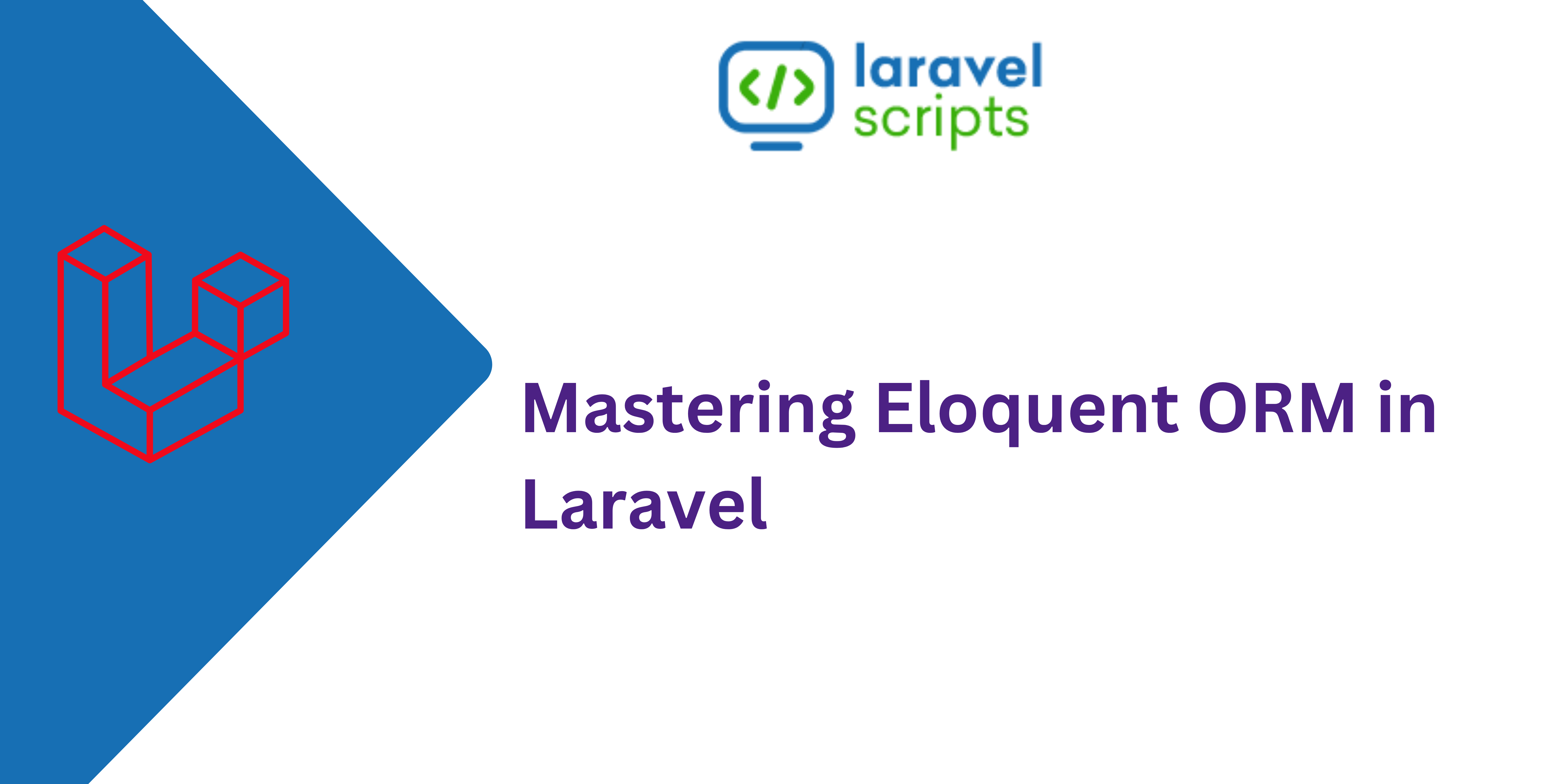Mastering Eloquent ORM in Laravel

Mastering Eloquent ORM in Laravel: A Comprehensive Guide
Laravel's Eloquent ORM is a powerful tool that simplifies database interactions through an elegant ActiveRecord implementation. Whether you're a seasoned Laravel developer or just starting, mastering Eloquent can greatly enhance your ability to build robust, efficient, and maintainable applications.
This guide will take you through the core concepts, advanced techniques, and best practices to help you unlock the full potential of Eloquent ORM in Laravel.
What is Eloquent ORM?
Eloquent ORM (Object-Relational Mapping) is Laravel’s built-in ORM that provides a simple and expressive way to interact with your database. With Eloquent, each database table is associated with a corresponding "Model" in your Laravel application, and you can perform database operations using intuitive methods.
Getting Started with Eloquent Models
To use Eloquent, you need to define a model for each database table. You can create a model using the Artisan CLI:
php artisan make:model Post By default, the Post model will interact with the posts table in the database.
Example Model
Here’s what a basic Eloquent model might look like:
namespace App\Models;
use Illuminate\Database\Eloquent\Model;
class Post extends Model
{
protected $fillable = ['title', 'content', 'status'];
} CRUD Operations with Eloquent
Eloquent simplifies CRUD (Create, Read, Update, Delete) operations. Here's how you can perform them:
Create a New Record
$post = new Post();
$post->title = 'Laravel Eloquent Guide';
$post->content = 'Mastering Eloquent ORM in Laravel.';
$post->status = 'published';
$post->save(); Alternatively, use mass assignment:
Post::create([
'title' => 'Laravel Eloquent Guide',
'content' => 'Mastering Eloquent ORM in Laravel.',
'status' => 'published',
]); Read Records
$posts = Post::all(); // Fetch all records
$post = Post::find(1); // Fetch a single record by ID
$publishedPosts = Post::where('status', 'published')->get(); // Conditional fetch Update a Record
$post = Post::find(1);
$post->title = 'Updated Title';
$post->save(); Or with mass assignment:
Post::where('id', 1)->update(['title' => 'Updated Title']); Delete a Record
$post = Post::find(1);
$post->delete(); Or delete directly:
Post::destroy(1); Eloquent Relationships
Eloquent makes it easy to define relationships between models, such as One-to-One, One-to-Many, and Many-to-Many.
One-to-One
class User extends Model
{
public function phone()
{
return $this->hasOne(Phone::class);
}
} One-to-Many
class Post extends Model
{
public function comments()
{
return $this->hasMany(Comment::class);
}
} Many-to-Many
class User extends Model
{
public function roles()
{
return $this->belongsToMany(Role::class);
}
} Eager Loading
Eager loading solves the N+1 query problem by loading related data in a single query.
$posts = Post::with('comments')->get(); Advanced Eloquent Techniques
Query Scopes
Scopes allow you to define common queries directly in your model.
- Global Scope:
class Post extends Model
{
protected static function booted()
{
static::addGlobalScope('published', function ($query) {
$query->where('status', 'published');
});
}
} - Local Scope:
class Post extends Model
{
public function scopePublished($query)
{
return $query->where('status', 'published');
}
}
$posts = Post::published()->get(); Accessors and Mutators
Accessors format attributes when retrieved, and mutators format attributes before they’re saved.
- Accessor:
class Post extends Model
{
public function getTitleAttribute($value)
{
return ucfirst($value);
}
} - Mutator:
class Post extends Model
{
public function setTitleAttribute($value)
{
$this->attributes['title'] = strtolower($value);
}
} Attribute Casting
Eloquent allows you to cast attributes to specific data types.
class Post extends Model
{
protected $casts = [
'is_published' => 'boolean',
];
} Performance Optimization with Eloquent
-
Chunking: Process large datasets in chunks to save memory.
Post::chunk(100, function ($posts) { foreach ($posts as $post) { // Process each post } }); -
Lazy Eager Loading: Dynamically load relationships when needed.
$posts = Post::all(); $posts->load('comments'); -
Indexes: Ensure frequently queried fields are indexed in your database.
-
Select Specific Columns: Avoid fetching unnecessary columns.
$posts = Post::select('id', 'title')->get();
Tips and Best Practices for Mastering Eloquent
- **Use
$fillableor$guardedto protect your models from mass assignment vulnerabilities. - **Leverage relationships and eager loading to reduce the number of queries.
- **Keep models slim by offloading business logic to service classes or repositories.
- **Use
query scopesto make your queries reusable and concise. - **Optimize queries for performance by minimizing joins and using database indexing.
